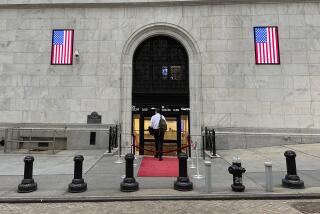Blockhead Thinking About Chips : Pricing Japanese technology higher didn’t solve the problem
- Share via
The American makers of tiny chips used in electronics products have been feuding with U.S. computer manufacturers for the past four years as if they were foreign powers fighting over some off-shore island.
At issue: The 1986 U.S.-Japan semiconductor trade pact, which was designed to protect American semiconductor makers from predatory pricing practices by Japanese competitors.
Key provisions of the trade pact effectively kept price levels up for imports of widely used memory chips from Japan. That was supposed to make the domestic chip makers happy. But the result was U.S. computer makers faced much higher chip prices. That made the computer firms very unhappy.
To make matters worse, the trade agreement, which expires next July, was supposed to entice American chip suppliers to reenter the market. But that didn’t happen. Instead, despite the higher prices for Japanese chips, the U.S. share of the $50 billion worldwide semiconductor market plummeted to 37.3% in 1989 from 54.3% in 1983.
And Japan’s share, meanwhile, rose to 50.4% in 1989 from 36.7% six years ago. U.S. suppliers also lost market share domestically to their Japanese competition.
But now major U.S. semiconductor makers and computer manufacturers have agreed to ditch these reverse price supports. In a notable joint campaign, they are urging President Bush to renew the agreement--without the pricing provisions.
At the same time they are asking the Administration to press the hard-working Japanese, ever-modernizing their own chip technology, to open their market to more American-made semiconductors. In 1986, Japan agreed to allow foreign suppliers 20% share of the semiconductor market. So far, the U.S. share is only 12.5%.
The new-found consensus reflects an acknowledgement by U.S. computer makers that it is vital for the United States to have a healthy domestic source of chips. Should a shortage of chips occur and the American semiconductor industry continue to erode, computer makers could be hostage to imports. At the same time, they must have access to Japan, the world’s largest--and most advanced--semiconductor market.
In the past, divisions within the U.S. electronics industry have weakened its resolve to become competitive. An industry attempt to create a new company to meet the Japanese challenge in chip making fell apart. Until recently all the news in this area has been bad. Not now.






